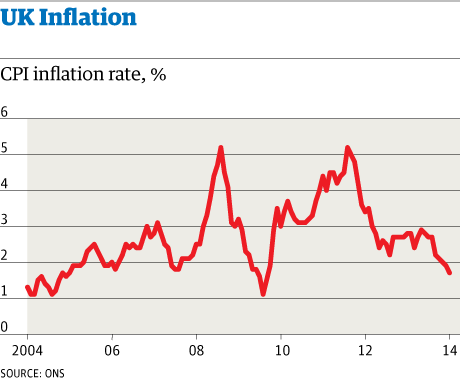Interest Rates Likely to Stay Low for Years And Why That s Important
Post on: 21 Июль, 2016 No Comment

The President of the Federal Reserve Bank of New York, William Dudley, gave a speech on Tuesday in which he gave three reasons why the short-term interest rate is likely to stay below its historical average for several years. Ill explain Mr. Dudleys three reasons and why this matters, whether you are just starting your financial life, getting ready to retire, or somewhere between.
First off, why are interest rates going to stay low for several years?
- The Economy Remains Weak.
Even though the jobless rate is (finally) coming down, the economy in the US remains very weak and dependent on heroic actions by the Fed interest rates near zero and bonds purchases in the open market. Unfortunately this is likely to continue.
The largest driver of our economy is the housing market, but it is depressed as banks remain unlikely to loan mortgages to anyone with less than a stellar credit history, young people are slow to become first-time homeowners due to record-high student loan debt, and households were scarred by the Great Recession and are now much more conservative financially (good for their risk profile, but bad for economic growth).
- Future Economic Potential is Lower.
The US economy is entering a period in which many citizens the baby boomer generation will ceasing adding productivity to the overall economy. In other words, they will retire. This means that the US economy will be much less likely to grow even when conditions improve. The Fed will keep interest rates low in to compensate for the structural changes in the economy.
- New Regulations have Changed the Economics of Banking.
Great Recession revealed how risky banks had become by taking on huge amounts of leverage to boost their profits. New regulations keep that risk in check by requiring that banks retain a higher cushion of cash for emergencies but the flip side of that coin is that banks are now much less profitable and they lend less. Since lending stimulates the economy, these new banking regulations depress the economy. The Fed will keep interest rates low to provide stimulation as an offset of the regulations effects.
So, if interest rates are likely to stay low for several years, how will that impact people? Lower interest rates have impacts on everyone and those impacts grow over time.
- The Young, Just Starting Out.
If you are just starting out in your economic life, low interest rates give you the opportunity to pay off your student loans more quickly than you would be able to do with higher interest rates. It would behoove you to do so as quickly as possible. Once student loans are paid, you then have the opportunity of a lifetime to get a home mortgage at an incredibly low interest rate. One other item for the young the only interest rate that has NOT dropped is credit card interest, which is still in the upper teens and even over twenty percent. Avoid credit card debt in any way you can!
- At or Near Retirement.
If you are retired or nearing retirement, low interest rates mean that you cannot depend on the low-risk steady stream of income that come from bonds long the staple of investments for retirement. Instead, you will need to look at preferred stocks that produce coupon dividends or common stocks that pay dividends. As an example, my wife and I are now both retired, and we recently shifted assets into common stocks that pay dividends so we get a steady stream of cash and can participate in stock appreciation.
- Between Starting and Retiring.
If you are between starting out and retirement, you have opportunities to structure your spending and investing to take advantage of these historically low interest rates. On the spending side be sure that you dont throw away any money on credit card interest. Be sure you pay off your credit cards every month, and look for a credit card that pays you cash back generally 1% to 1.5% of whatever you spend. Now is a great time to pay off any high interest rate loans and replace them with lower rate loans.
On the investment side, any interest that you earn will be low due to the low interest rates, so only keep cash in a savings account at a level you need for emergencies. Put the rest to work in investments that will work for you. For the next several years, you should look for investments that will increase in value and not investments that will pay interest (stocks rather than bonds). Since stocks are inherently more risky than bonds, it makes sense to increase your diversification to compensate for the additional risk.
If you are running a business, low interest rates mean that loan financing is an option where it might not have been in the past. Several companies that I have seen in the last couple of years have been able to finance themselves (at least partially) with loans rather than selling controlling interests to a venture capital investor.
When I was growing up, and even when I was getting my MBA, people regularly talked about the magic of compound interest. Well, compounding interest was a lot more magical back then, when money-market rates were 20%, than today, with money market rates below 1%.














